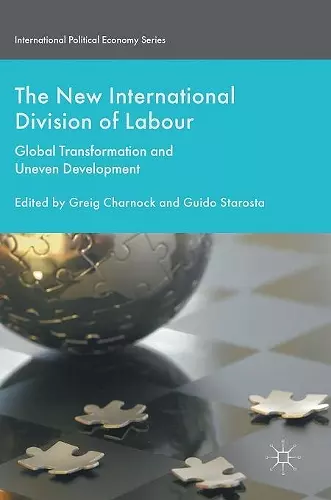The New International Division of Labour
Global Transformation and Uneven Development
Guido Starosta author Guido Starosta editor Greig Charnock editor
Format:Hardback
Publisher:Palgrave Macmillan
Published:15th Jun '16
Currently unavailable, and unfortunately no date known when it will be back

"This important collection of essays presents a critical rehabilitation of the concept of the New International Division of Labour, which framed our understanding of global capitalism in the 1980s. Original theoretical developments are applied to a range of countries and sectors, offering new insights into the variegated forms taken by global capital today." (Hugo Radice, University of Leeds, UK) "Most accounts of globalisation focus on corporations and states. Each chapter in this extremely important collection illuminates how theoretically impoverished and disorienting such accounts are. Each chapter proves the superiority of Marxian analyses centering on capital, ground rent, and the productive subjectivity of working men and women across the globe." (Tony Smith, Iowa State University, USA) "This collection emphatically puts value back into debates over the global division of labour. Theoretically sophisticated, closely argued, and expressly political, it opens new pathways for critical scholarship." (Marcus Taylor, Queen's University, Canada)
This book revisits the debate over the new international division of labour (NIDL) that dominated discussions in international political economy and development studies until the early 1990s.This book revisits the debate over the new international division of labour (NIDL) that dominated discussions in international political economy and development studies until the early 1990s. It submits that a revised NIDL thesis can shed light on the specificities of capitalist development in various parts of the world today. Taken together, the contributions amount to a novel value-theoretical approach to understanding the NIDL. This rests upon the distinction between the global economic content that determines the constitution and dynamics of the NIDL and the evolving national political forms that mediate its development. More specifically, the authors argue that uneven development is an expression of the underlying essential unity of the production of relative surplus-value on a world scale. They substantiate and illustrate this argument through several international case studies, including Argentina, Brazil, Ecuador, Ireland, South Korea, Spain and Venezuela.
ISBN: 9781137538710
Dimensions: unknown
Weight: 4552g
252 pages
1st ed. 2016